Life
Sign up for our newsletter
We summarize the week's scientific breakthroughs every Thursday.
-
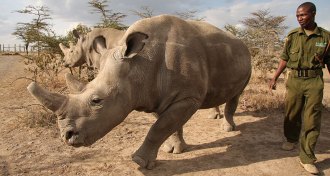 Animals
AnimalsResearchers create hybrid embryos of endangered white rhinos
Scientists have made the first rhino embryos, providing a small glimmer of hope for the nearly extinct northern white rhinoceros.
-
 Life
LifeThis ‘junk’ gene may be important in embryo development
Mice — and maybe humans — can’t get past the two-cell stage of development without a particular type of jumping gene.
-
 Archaeology
ArchaeologyMongolians practiced horse dentistry as early as 3,200 years ago
Horse dentistry got an early start among Bronze Age Mongolian herders.
By Bruce Bower -
 Genetics
GeneticsKoala genome may contain clues for helping the species survive
The complete genetic instruction book of a koala may explain why the cuddly-looking cuties are such picky eaters, among other secrets.
-
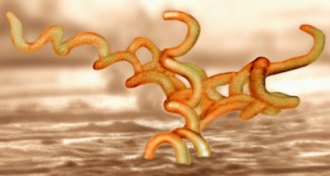 Health & Medicine
Health & MedicineFinally, there’s a way to keep syphilis growing in the lab
Scientists have figured out how to keep a sample of the bacteria Treponema pallidum alive and infectious for over eight months.
-
 Genetics
GeneticsThe study of human heredity got its start in insane asylums
‘Genetics in the Madhouse’ reveals how human heredity research began as a statistical science in 19th century insane asylums.
By Bruce Bower -
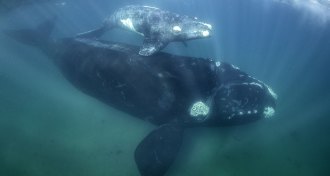 Animals
Animals‘Spying on Whales’ dives into the story of true leviathans
"Spying on Whales" retraces the evolution of cetaceans, explaining how they came to be some of Earth’s largest creatures.
By Sid Perkins -
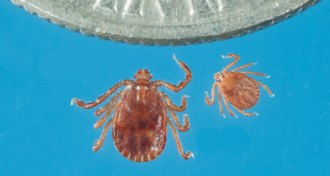 Animals
AnimalsThis invasive tick can clone itself and suck livestock dry
The newly invasive longhorned tick, now found in four continental U.S. states, spreads human diseases in its native Asia. Here, it’s mostly a threat to livestock — so far.
-
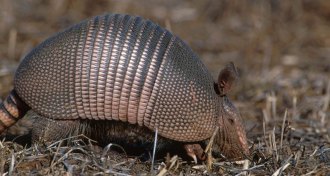 Life
LifeLeprosy lurks in armadillos in Brazil’s Amazon
Armadillos in the Brazilian Amazon are often infected with leprosy, which they may pass to people.
-
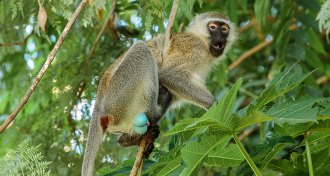 Animals
AnimalsWhy some mammal species don’t have descended testicles, but most do
New research studying genetic vestiges suggests that descended testicles are as ancient as the first placental mammal.
By Angus Chen -
 Neuroscience
NeuroscienceA brain chemical tied to narcolepsy may play a role in opioid addiction
Long-term use of opioids such as heroin is linked to having more brain cells that release a chemical that regulates wakefulness and arousal.
-
 Genetics
GeneticsReaders ponder geothermal power and more
Readers respond to stories from the May 26, 2018 issue of Science News.